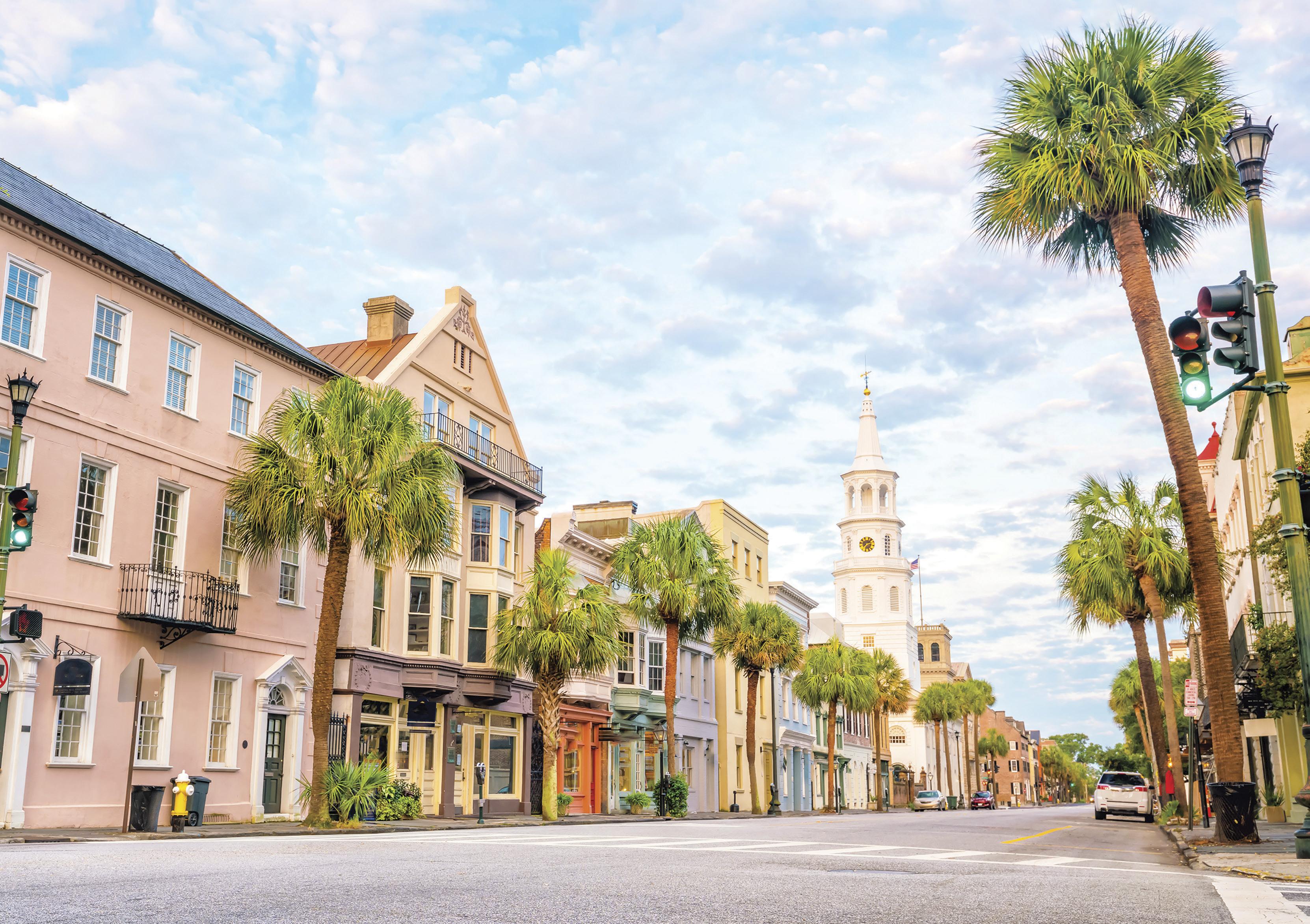
4 minute read
The Pink Teacup
By Suzanne Pollak
I seem to have lived in a series of pink houses throughout my life. The first was in Mogadishu, Somalia, when I was a young girl. The second, in the early 2000s, was an eighteenth-century townhouse on Rainbow Row in Charleston, South Carolina. Now I live in another eighteenth- century pink house around the corner on Church Street, one of the most beautiful streets in the city. The house is the size of a teacup—with the charm of one too. The special appeal of the abode is the small balcony overlooking the street. Unbelievably, no one stepped onto the balcony for over thirty years.
I chose the pink teacup because of that balcony and the street’s busyness below, which reminded me of cities in my childhood. The streets in the Middle Eastern and African cities were newspapers in motion, all sections: front page, editorial, sports, even advertising pages. The verbal secret newspaper. Gossip central. News, free for all!
One of the best places to learn the news was in the elevated outdoor spaces above the streets (balconies, terraces, piazzas, and verandas—the name depended on the culture). I watched people hiding on secondfloor verandas along narrow alleys in crowded cities, occupants shaded behind lattice or screens or beaded strings. Suddenly, a laugh echoed through the air or a mother’s shout commanded her child to stop kicking the soccer ball and come to eat. The aromas of cooking drifted down. We could smell dinners, hear low voices, and see the veranda sitters daydreaming, reading, or snapping green beans while information from the street rose to them.

Colorful and historic buildings line the streets of downtown Charleston, South Carolina.
My Church Street balcony was similar: a central hub in downtown Charleston. I gathered information like an ancient seer or snoop. The perch allowed me to collect local, national, and global data using eavesdropping and observation techniques I learned from my secret-agent father. Not much passed that I did not pick up. But no longer.
That was the world before March 2020. In the months before, and a hundred or two years before that, the house’s location was the center of the most popular block in Charleston: one block south of Broad (the street of lawyers); one block away from the four corners of law (the Federal Courthouse, the State Courthouse, City Hall, and Saint Michael’s Church); and directly across from “animal alley,” with three shops named after quadrupeds (a charming cheese shop called Goat. Sheep. Cow. and two art galleries, Dog & Horse and Fox Fine Art, sitting side by side).
Church Street has live animals too—in addition to the well-bred dogs and their walkers, horses pull carriages filled with international tourists. From these carriage drivers, I learned few facts and much fiction about our history. Eavesdropping from above, I gleaned the truths of what was going on, who was seeing whom, love affairs igniting, marriages on the rocks, who was going to what party, who went to church. I even knew who invited people for cocktails at the last minute because the host would rush into the cheese shop after work and then sprint out holding a cheese plate.
I loved spying, like my father, who was one for the CIA. Watching people I knew step out of their fancy cars and check themselves in their mirrors or posture in front of a store window checking their reflections made me smile. Which one of us hasn’t done the same when we thought no one was looking? Like my father before me, I watched, listened, gathered tidbits: mine about individual social lives; his, the beliefs people held about their governments. But no longer.
Now, I hover above a hauntingly empty street, waiting and wishing to see faces, horses, tourists. Where have all the people gone? To hide in houses of their own while we wait out COVID-19. I used to not feel lonely sitting by myself. My balcony connected me to my community. I enjoyed my solitary afternoons with a book and a beer at five, a computer and work before the drinking hour. Can you imagine a better office? When I needed a minute to collect my thoughts, I had a world below to take in. If I wanted company, I invited a friend walking by to come on up. But no longer.
Through the window, the sounds of the Monday morning garbage truck at five thirty wake me up, and the little bird still sings daily at six. Then a whippoorwill chimes in while I carry my milky tea to the balcony and think about the new paths all our lives are on, the world in the midst of cultural shift.

Suzanne Pollak, a mentor and lecturer in the fields of home, hearth, and hospitality, is the founder and dean of the Charleston Academy of Domestic Pursuits. She is the coauthor of Entertaining for Dummies, The Pat Conroy Cookbook, and The Charleston Academy of Domestic Pursuits: A Handbook of Etiquette with Recipes. Born into a diplomatic family, Pollak was raised in Africa, where her parents hosted multiple parties every week. Her South Carolina homes have been featured in the Wall Street Journal Mansion section and Town & Country magazine. Visit CharlestonAcademy.com or contact her at Suzanne@CharlestonAcademy.com to learn more.










